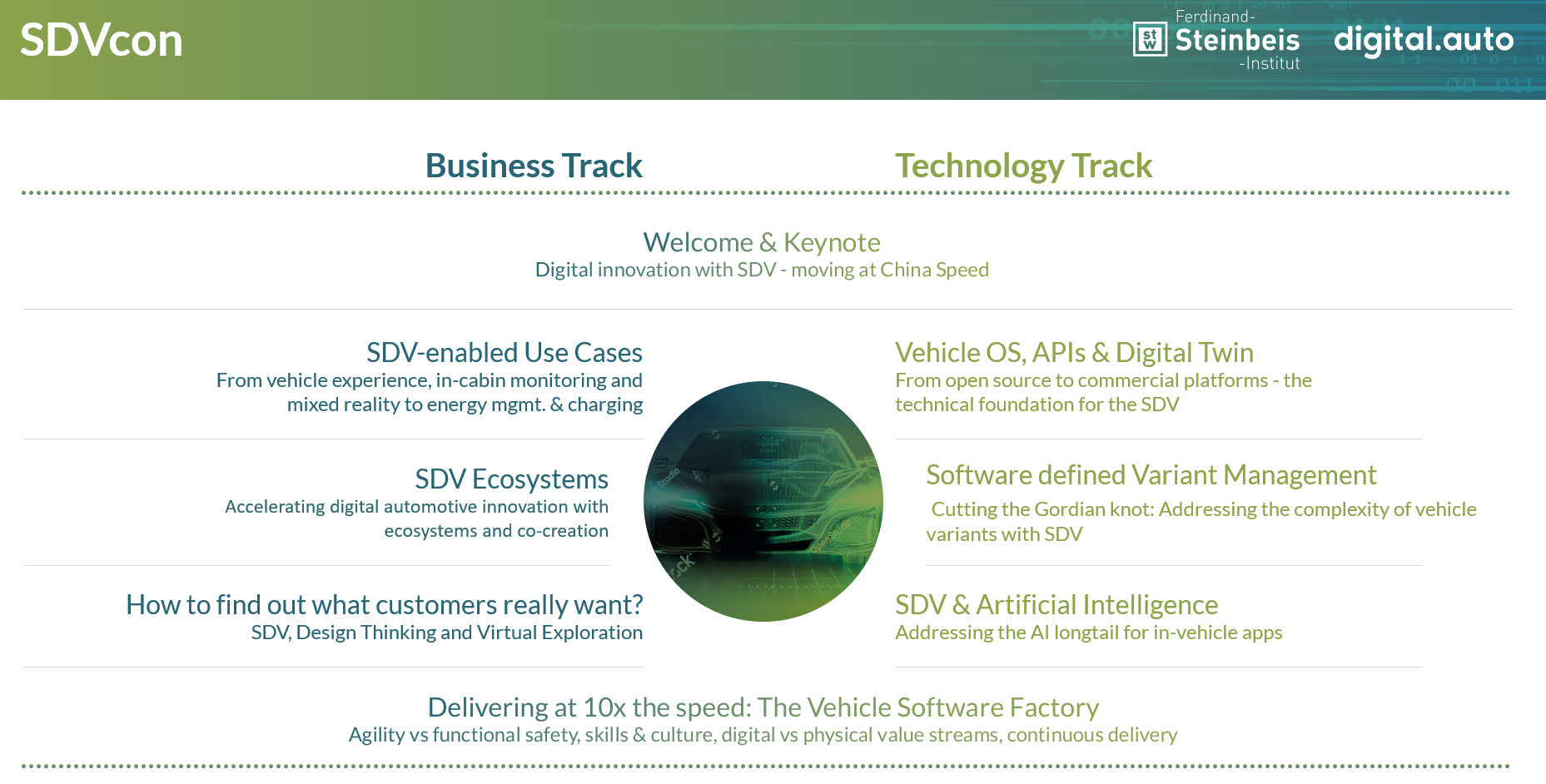
You can find the detailed program below
Track: Keynote
- Wednesday
22.11.
Towards the digital.auto: understanding customer needs and delivering at 10x the speed (Prof. Dr. Dirk Slama, Bosch)
More information will follow soon.
______________________________________________________________________________
Die Automobilindustrie Chinas: Gefahr oder Chance für die deutsche Industrie? (Fred Schulze, Audi AG)
Ist die Automobilindustrie Chinas eine Gefahr oder eine Chance für die deutsche Industrie und damit auch für die Region?
Diese Frage beantwortet Fred Schulze,…
Code Driven: Lessons Learned from the Vehicle Industry (Sebastian Werner, Kearney; Sven Kappel, Etas; Christian Hort, T-Systems)
In the ever-evolving landscape of automotive technology, the paradigm of Software Defined Vehicles is reshaping the industry at an unprecedented pace. ""Code Driven: Insights from the Vehicle Industry"" offers a unique perspective on the road to transformation.
In this session, we'll leverage our experiences and benchmarks from recent years to reveal the strategies and…

